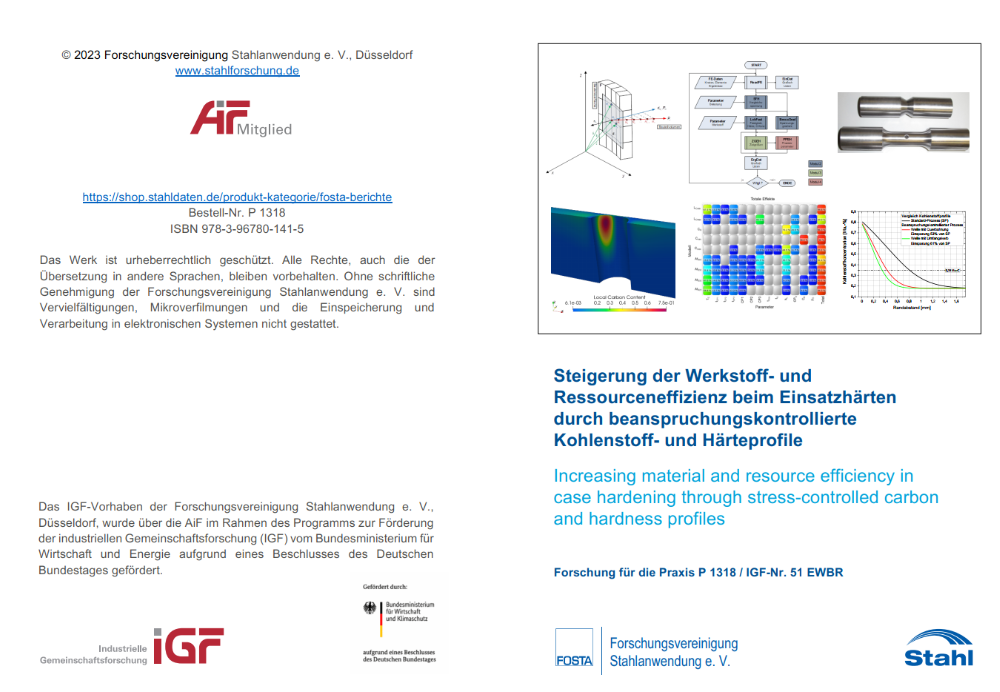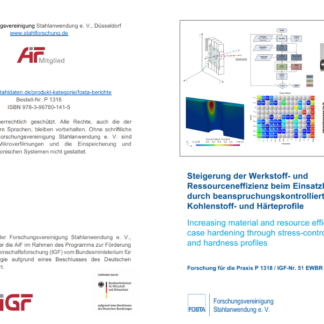Description
P 1318 – Increasing material and resource efficiency in case hardening through stress-controlled carbon and hardness profiles
Case hardening can increase the required local material strength against component failure of steel components. The basis for this is the increase in material hardness as a result of higher-strength microstructural constituents and the associated induction of residual compressive stresses in the failure-relevant component edge region.
In addition to their effect as mold notches on component stressability, design details also have an effect on key component properties after case hardening, such as edge carbon content and edge hardness, as well as carburization and case hardening depth.
At present, component notches are neither taken into account within the componentrelated specification of target values for case hardening nor within the definition of process parameters by the control and regulation software of case hardening plants.
In the research project, a concept was developed for the numerically based determination of stress-controlled target and process variables of case hardening. In this concept, the condition of the steel component as a result of external stress forms the decisive basis. The actual stress condition in the failure-critical area of the steel component is decisive. The necessary target values for case hardening are defined for precisely this area. The process parameters required to meet the target values are generated taking into account the geometry of the failure-relevant component area. This makes it possible to significantly reduce the required carburizing and case hardening depths and thus the overall process times for the respective case hardening of steel components. Compared to the previous empirical approach, the energy and resource efficiency of case hardening can thus be increased.
The validation of the analytical results of the research project was carried out on the basis of shaft samples made of the case-hardening steel 16MnCrS5 with different design details acting as mold notches. Compared with a standard case hardening process, the total process time was reduced by 53% in the case of stress-controlled case hardening of the shaft with cross hole and by 61% in the case of stress-controlled case hardening of the shaft with circumferential notch. Fatigue tests carried out in the fatigue strength range show that stress-controlled case hardening does not have any negative effects on the stressability of the shaft specimens.
All research reports in german language only!
Published in:
June 2022
Authors:
Dr.-Ing. A. Diemar, Dr.-Ing. U. Gerth, Prof. Dr.-Ing. habil. C. Könke


